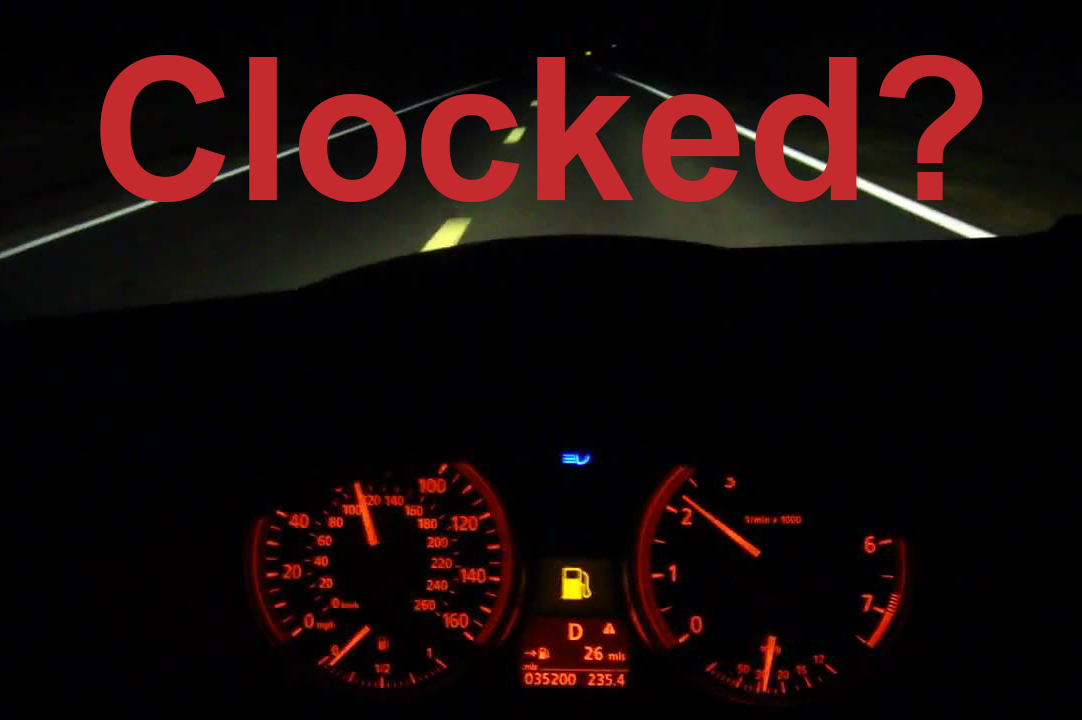What rights do I have if I was sold a clocked car?

Every year in Ireland, thousands of used cars change hands through dealers and private sellers and so, there is a chance that you could sold a clocked vehicle without you knowing. While the vast majority of vehicles traded are genuine, a surprising number of purchasers hand over their cash without a car history check, or without taking even the most basic precautions in establishing the cars history.
What is clocking?
Clocking is the term used to describe the falsification of a cars recorded mileage for the purpose of increasing its value. While most used cars on the market display genuine mileage, a significant number of vehicles have had their mileage altered by an unscrupulous seller.
Is Clocking Illegal in Ireland ?
Make no mistake about it, clocking a vehicle is a serious offence and can carry a heavy penalty on conviction. The law governing vehicle clocking falls under the Consumer Protection Act and can be summed up by the following statement on the CCPC (Competition and Consumer Protection Commission) website;
It is an offence under consumer protection law for a trader to give false, misleading or deceptive information about the history of a car, for example, a trader giving false information about a car’s mileage.
Why Shouldn’t I Want a Clocked Car?
The purpose of recording the mileage of a vehicle is to keep track of its condition and ensure it is properly maintained and roadworthy. To ensure the safety of the user and that of other road users, a vehicle must be maintained according to its service schedule and in this respect; an accurate record of the mileage covered is essential. A poorly maintained vehicle not only compromises on safety, but will also have a negative effect on resale value and reliability. When buying a used car, it is essential to obtain an accurate assessment of the cars condition. An honest record of the cars mileage is a critical starting point in doing so.
How can I avoid buying a clocked car?
According to research carried out by the CCPC, as much as 20% of buyers purchase a used car without carrying out any checks on the cars previous history. Purchasing a car history check is one of the simplest and most reliable ways of verifying the cars credentials including mileage, previous owners, accident damage, outstanding finance and much more. However, when it comes to striking the deal and completing your purchase, it is good practice to avoid paying in cash and instead use an easily traceable method of payment such as a bank draft or electronic funds transfer. It is also essential to obtain a receipt for your payment which records the cars make and model, general condition and the mileage displayed at the time of purchase. If the seller is reluctant to provide this at the time of sale, it makes sense not to proceed.
What Are My Rights as a Consumer?
Buying and selling of vehicles, falls under the same consumer protection laws applicable to a wide range of consumer goods. It is an offence under consumer protection law for a dealer to misrepresent a vehicle. This includes the cars specification, previous history such as accident damage, service history, any necessary repairs and most importantly, its mileage. Misrepresentation also includes knowingly withholding information about the car, which may affect its value. Be aware however, that none of these consumer rights apply to private sellers. It is essential therefore, to be vigilant against professional traders disguising themselves as private sellers in order to sidestep their legal obligations.
I think I’ve bought a clocked car, What Now?
If you have reason to believe you have bought a clocked car, you should:
-
Act immediately - While you have up to three years to pursue a claim in respect of a clocked car, it is advisable to act as soon as the issue comes to light. The longer you delay, the greater the risk that you will be unsuccessful in proving your claim or successfully pursuing those responsible
-
Gather all available evidence - Keep a copy of your receipt for purchase and any evidence of a financial transaction such as bank statements, cheques or receipts for money transfers. It may also be advisable to have the car assessed by a qualified mechanic or automotive engineer, obtain a written report of the condition of the car and whether it is consistent with the mileage recorded.
-
Report it to the CCPC - Finally, you should submit your report to the Competition and Consumer Protection Commission, along with all supporting documentation. More information on reporting a suspected case of vehicle clocking can be found on the CCPC website.
Author

Justin Kavanagh
Justin Kavanagh is a recognised leader
in automotive intelligence and vehicle
data supply to the entire motor industry.
He has almost 20 years experience in
building systems from the ground up.
As the Managing Director of Vehicle
Management System, he understands the
need and importance of trustworthy and
reliable vehicle history and advice to
both the trade and the public.
Follow me on LinkedIn